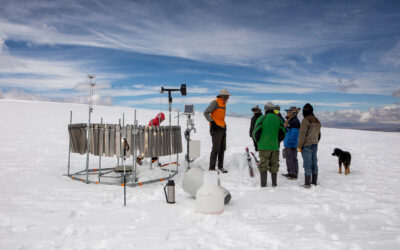This project will systematically review scientific and gray literature to identify opportunities and barriers for tribal communities and members in the US South to participate in existing and proposed forest carbon programs. The study collaborators will also meet with tribal members from across the southern region and national specialists to establish a network of stakeholders, build a foundation of trust, and utilize a participatory action approach to plan and implement research activities and analyze project findings. Then, the study collaborators will lead two discussion-based workshops where stakeholders from across the region may share their knowledge, perceptions, and preferences related to carbon markets. Information gleaned from the pre-visit stakeholder meetings and workshops will help identify the consistency of forest carbon programs with tribes’ cultural values. Workshop participants and study collaborators will also co-produce research questions and objectives, which will be incorporated into a report and proposal for future research including expanding the scope to include carbon programs for agriculture.
Do Forest Carbon Programs Align with the Needs and Values of Tribal Communities in the US South?
Multi-institutional | Research Working Group
September 1, 2023
– August 31, 2025
Project Details
Funded by USDA Forest Service Southern Research Station
(External Funding)
Administrative Unit
Research Institute for Environment, Energy, and Economics (RIEEE)
Research Theme
Project Team Members
More Projects and Programs
HHS NIH National Institute of Environmental Health Sciences (NIEHS)
New research recognizes the role that environmental factors sensitive to climate change and variability (e.g., increasing temperatures, heat waves) may play in the complex pathway linking environmental exposures and negative…
National Science Foundation (NSF) via Duke University
The International Network for Researching, Advancing, and Assessing Materials for Environmental Sustainability (INFRAMES) leverages the substantial investments in US and EU networks in the area of environmental nanotechnology to assemble…
National Geographic Society (NGS)




